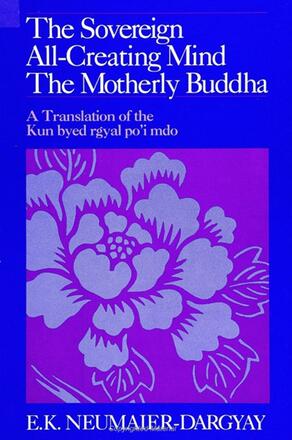
The Sovereign All-Creating Mind - The Motherly Buddha
A Translation of the Kun byed rgyal po'i mdo
Alternative formats available from:
Description
What distinguishes this Buddhist text from so many others is the timelessness of its ideas. It constitutes a radical attempt toward deconstructing Buddhist philosophy, and presents a feminist perspective on Buddhist spirituality. The text holds that being is the center and depth of existence, and is therefore accessible in everyday experience. The fleeting existence (samsara) is in its depth being, i.e. a state of complete integration (nirvana) which may well be described as divine reality of a feminine dimension
This book presents the first English translation of an eighth century Tibetan Buddhist text. Despite its centuries-old origin, the kun byed rgyal po'i mdo addresses themes of great concern to the present, including how to achieve a holistic world-view that integrates the peripheral nature of existence with the ground of being; and the interrelatedness of periphery and center, of individual and universe. From a contemporary viewpoint this can be seen to engender a feminist understanding of the ground of being. Unlike other Buddhist texts, the kun byed rgyal po'i mdo invites the reader to rejoice in this world as beautified and intelligible, and thus the innate purity of the intelligent potency, the motherly Buddha, will be experienced.
In addition to the translation, the book also includes a discussion of the conceptual and historical contexts of the text, an examination of its leading ideas, and an assessment of the challenges related to the translation.
E. K. Neumaier-Dargyay is Professor of Eastern Religions at The University of Calgary. She is the author of three books including the first German translation of the Tibetan Book of the Dead.